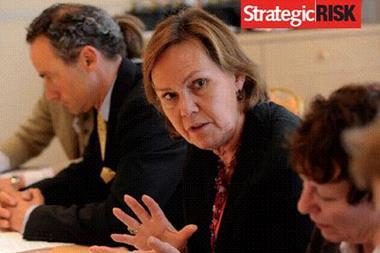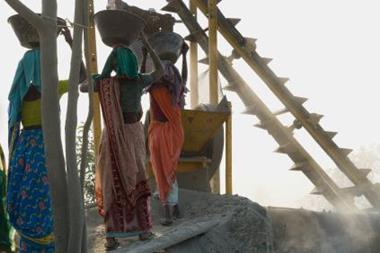The comparatively short-term focus of management boards and national governments means that the implications of long-term risks are not being taken into account despite the fact that dealing with them now would actually save overall costs
The global business environment is changing – and companies need to adapt their strategies accordingly. But the comparatively short-term focus of management boards and national governments means that generally the implications of long-term risks are not being taken into account despite the fact that dealing with them now, rather than in the future, would actually save overall costs. That is one of the clear messages that came from this year’s Presidents’ Roundtable.
Two of the particular focuses of this discussion were energy/commodity risks – scarcity and pricing volatility - and the effects of globalisation. It was generally agreed that meeting tomorrow’s demand for energy at an affordable price and without increasing environmental pollution could mean an unpalatable and potentially high risk solution – an investment in nuclear power plants. Globalisation, in particular, outsourcing, has produced some unforeseen consequences.
For example, outsourcing manufacturing to developing countries where costs were much lower was seen as the optimum answer for many European companies. And it looked as though it was adding flexibility because, of course, you could always change your supplier.
But, as one participant in this discussion pointed out, it’s not that easy, once you get to a certain size, to change your supplier in a global supply chain. And if you’re asking your suppliers to invest in meeting your international corporate social responsibility standards, which involves them committing some of their capital, they want some guarantee as to longevity of contract.
Both of these risks – energy and outsourcing – can probably be summed up by the word ‘interdependence’. Some European countries are going to have to rely on their neighbours to supply the power they need. And major companies are outsourcing to the same smaller suppliers in countries which may have different national priorities, presenting the risk of government intervention, or may even be in areas which could be prone to natural catastrophes. There’s a whole lot of risk there!
Finally, our participants looked at insurance issues and particularly contract certainty. The message here was that the insurance industry tends to get the blame for late policies but the risk manager is the starting point. If it is a goal to have your policy wordings confirmed on the day of inception/renewal, you need to begin negotiations early. Overall, it is clearly about planning renewals and making sure the interaction between risk managers, brokers and insurers works in a most efficient and productive manner. Some insurers clearly must improve in certain areas, providing customers with complete wordings in due course once both parties have agreed on all terms. This was a lively and informative discussion, taking a holistic global view of risk.
Downloads
StrategicRISK Presidents' Roundtable: Evolving risks
PDF, Size 2.24 mb
Postscript
Sue Copeman, editor, StrategicRISK
Florian Mueller, General manager, ACE Switzerland
Kadidja Sinz, head of financial lines for continental Europe, ACE



















No comments yet